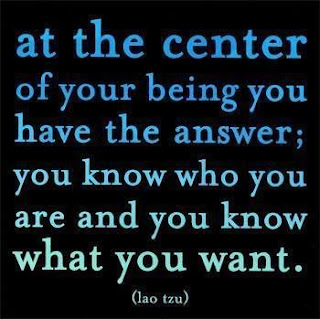
I made a very bold statement today. It went something like, “I am truly myself here” and just as soon as the words fell so effortlessly from my lips I started to weigh the gravity of the sentence. What does it mean to be truly one’s self? What does it feel like to know, entirely, who you are? Is knowing who you are meaning that you feel comfortable with the unknowns of your life and of your personality or is knowing being entirely sure? Do I know when I am truly myself or is that a case made by those around me?
As these questions swirled in my conscience, I started to think about all of the other times I’ve said that phrase. Each time was in a different scenario, in a different time of my life, in a different place entirely and I was almost entirely different every single time but each time I said, with certainty mind you, that I was myself.
I think that admitting that you are truly yourself at certain points in your life is a way to tabulate the portions of yourself that you have become comfortable with and have enough confidence to admit that you appreciate about who you are. Each of the times I said I was myself came as a marked decision that I was comfortable in the skin I was wearing at that moment. This year alone, I’ve said that loaded statement four times. The first time was at the beginning of the school year as I became friends with the CCM girls. That time, I was myself, the artist. The next time was when I became very close to two friends and considered them my best friends. That time, I was myself, feeling, emotional, dramatic. The third time, I was changing my major and accepting the fact that I care too much and am too weak to ever make it in the world of theater or stage management. That time, I was myself, the empathetic and unsure. This time, I am being goofy and five and not trying to hide any of my oddities to please people who are older than me. I am myself, the responsible child.
So each time we make the claim that we are entirely ourselves, we should consider ourselves self confident, if only for even that moment. Because for one small sentence, we are saying that we are proud to be living the life we are, exactly how we are. We human beings change, along with most other things in this world, and therefore the proclamation is saying that in this moment, this me is who I want to be and I am beautiful for it.
I can say the afore said because of the people I have met here at CLOC and how wonderful the entire company has been to work with. There is no reason I feel as though I need to be anyone other than who I am at this very point in my life. That is the greatest gift I can ask for from any group of people and artists.

